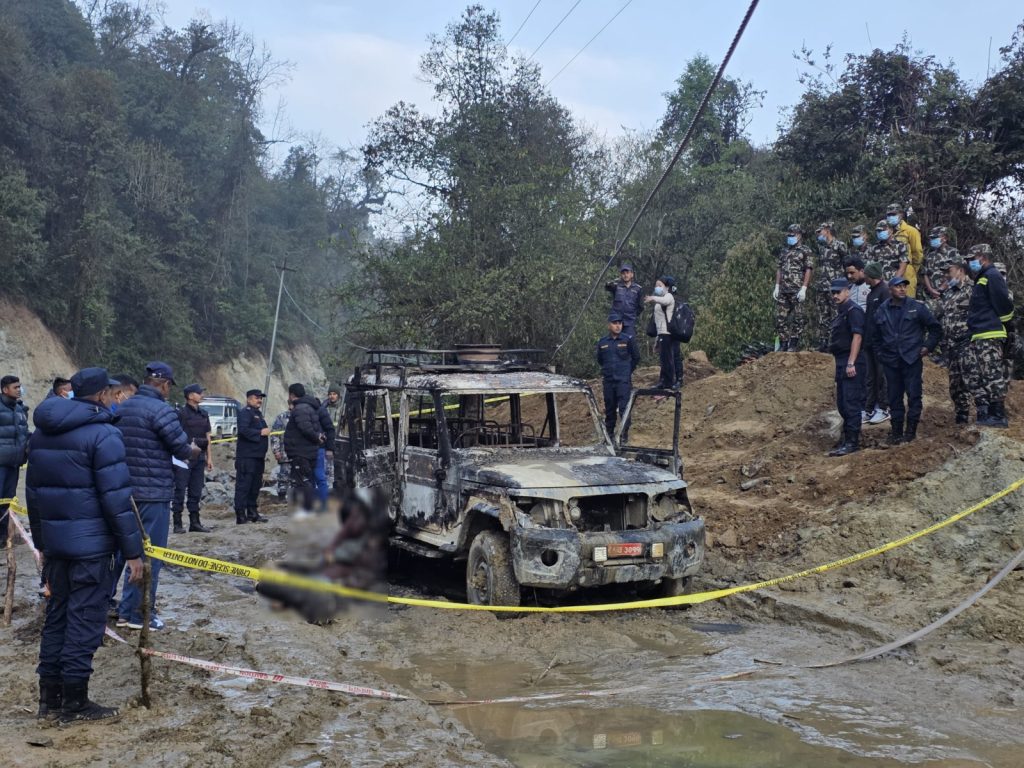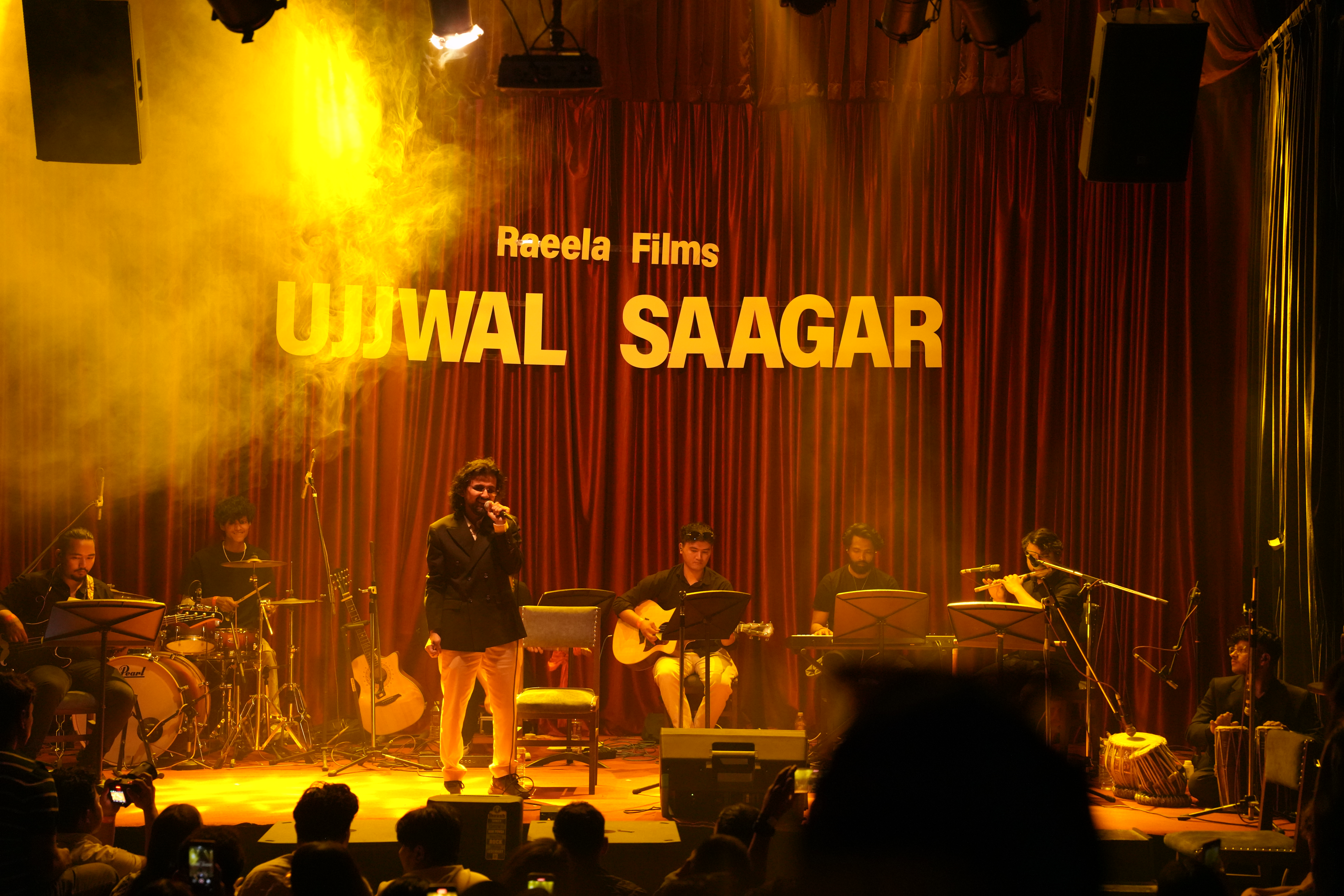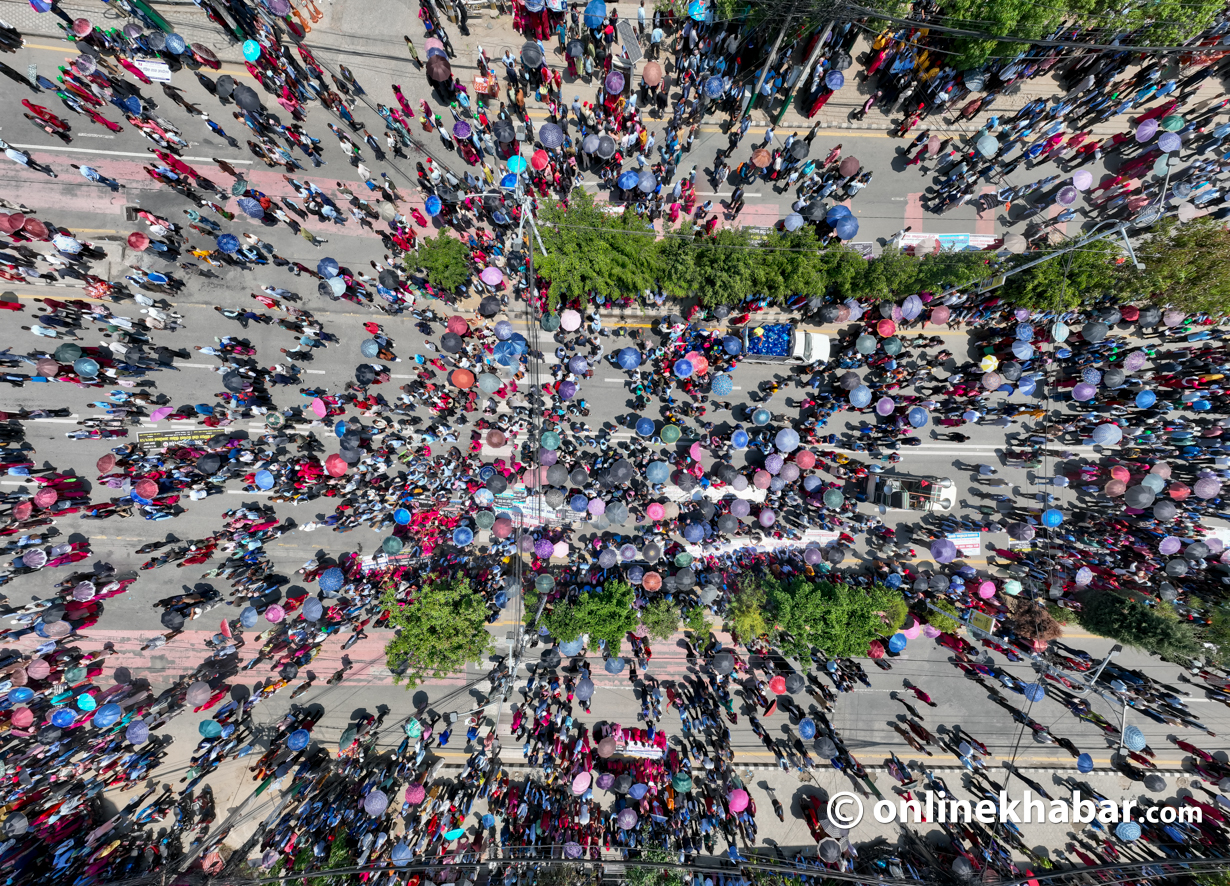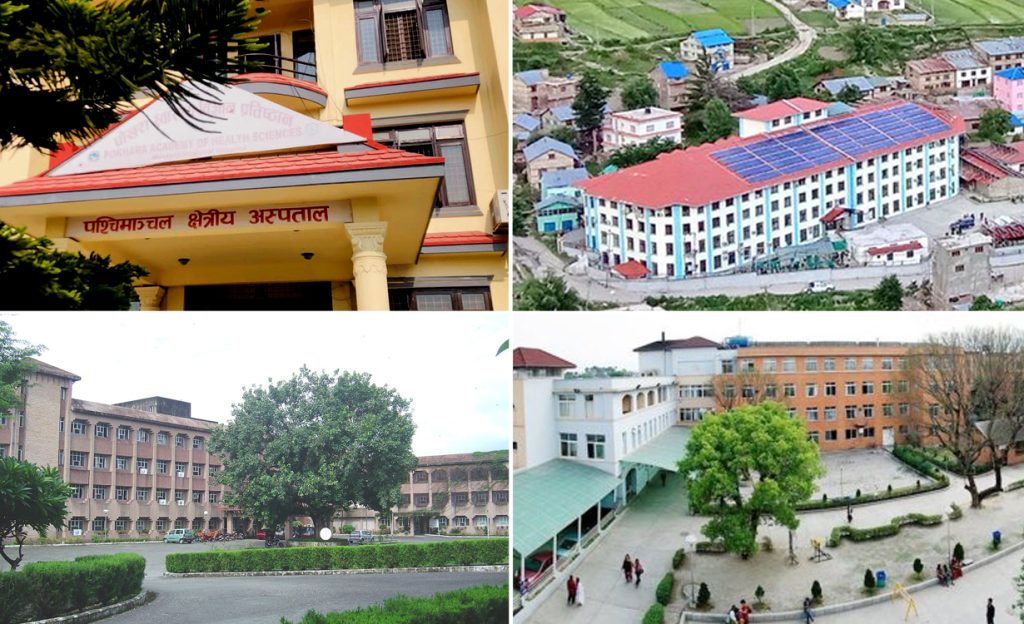
Nepal is a country of diverse ethnicities and all of them have their own art, culture, norms, values and lifestyle. That is not all, they also have their own story of struggles and agony. Among the many ethnicities, Tamang is one of them. This group has its own story of pain and struggles, and Masinya, a play written by Laxmi Rumba, Raju Syangtan, and Rabat, has tried to shed light on it.
There is a dearth of plays that are related to the Tamang community. According to reports, plays depicting the Tamang community have been shown in the country only twice before (Mehendo Maya and Sonam Gyalmo). Therefore, Masinya being showcased at Mandala Theatre has become a major hit.
As the play begins, it takes us to the world of dhami jhakris, traditional faith healers or ritual practitioners. Nine dhami jhakris are gathered there in a circle, with their leader standing separately, playing the dhyangro and chanting mantras to treat a girl who is experiencing mental distress. The main jhakri begins asking the girl questions about her problems, and she starts to respond. The play then goes back in time.
Shedding light on the pain of the indigenous

We are introduced to Chyangba, who is busy making a chorten, a stupa-like structure built in memory of someone who has passed away, in an open space. Chyangba is making the chorten in memory of his parents.
Soon a conflict arises when Chyanba is told the chorten he built will be destroyed as the local government was building a road near it.
Despite there being alternative options for road expansion that would preserve the chorten, the authorities are seen disregarding these alternatives. This initial instance in the play highlights how the rulers have suppressed the traditional sentiments of the indigenous people, including those from the Tamang community, and disrespected their culture.
Masinya revolves around various significant concerns of the Tamang community, with the consumption of beef being one of the prominent issues among them.
In Nepal, the law prohibits the slaughter of cows; however, it does not explicitly prohibit the consumption of beef. Nevertheless, eating beef remains a controversial topic in Nepal, with people divided in their opinions about it.
Masaniya shows the mistreatment faced by the Tamang community simply because they consume beef, a practice they have upheld for centuries. In the play, Chyangba is arrested by the police and is tortured for consuming the meat of a cow that had fallen off a hill. The creators of the play are trying to shed light into a prevalent issue that has grappled the community for years.
Togetherness of the community

Masinya, directed by Buddhi Tamang and Sonam Lama, despite focusing on the oppressions faced by the Tamang community, is not solely about sadness, tears, and emotional scenes. The play offers various moments of joy, happiness, and laughter.
In the play, Tamang songs with damphu and tugna music make you want to dance. Funny conversations between characters, like Chyangba and his girlfriend, keep the audience laughing non-stop. The humorous conversations between characters like Chyangba and his girlfriend provide comic relief, stimulating continuous laughter from the audience.
The gathering of diverse characters engaging in gossip, singing, dancing, and sharing meals creates a local ambience, resembling that of a Tamang village. The lively songs in the play, conceptualised by Sonam Lama, are particularly noteworthy. Special mention must also be made of the live musicians who enhance the overall experience of the play.
The lighting in the play is expertly done, adding vibrancy to the scenes. Bal Bahadur Rai, the lighting technician, skillfully uses light to enhance the atmosphere at crucial moments.
The traditional setting of the house, the arrangement of utensils used for making jaad (local booze), and conversations in the Tamang accent and language create an authentic feel.
While Masinya includes the Tamang language in some parts, those unfamiliar with it may feel momentarily disconnected. However, not understanding the language does not hinder the overall understanding of the play.
As the play is focused on the issues of the Tamang community, the play also deserves to be watched by people of various communities.
People from the Tamang community can relate to play but people from other communities can learn various new things about the Tamang community, it will give them a new perspective on their culture, lifestyle and struggles.
Masinya will run through February 11 every day at 5:00 pm except Monday at Mandala Theatre, Kathmandu. There will be an additional show on Saturday at 2:00 pm.




















